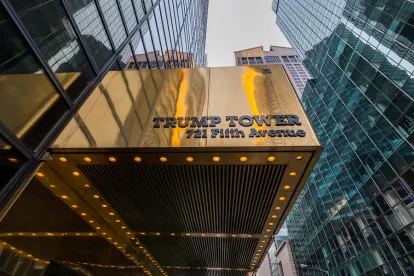President Trump’s emoluments problem keeps popping up and smacking him in the face. This week he lost a case about quashing Congressional subpoenas because the judge pointed to a pesky part of the Constitution that Trump keeps allegedly flouting.
Ever since day one of Trump’s presidency, he has arguably been in violation of one of the original parts of the U.S. Constitution called the Foreign Emoluments Clause. This part of the law is anti-corruption provision to prevent foreign governments from taking over or influencing American officials with lavish gifts, money or things of value.
The text of the Constitution’s Foreign Emoluments Clause is “No Person holding any Office of Profit or Trust under [the United States], shall, without the Consent of the Congress, accept of any present, Emolument, Office, or Title, of any kind whatever, from any King, Prince, or foreign State.” And it means what it says: federal officials like the president cannot keep a foreign emolument from a foreign government without the consent of Congress. If Congress says “no,” then the president can’t keep it. So far, President Trump hasn’t bothered to ask Congress for consent.
President Trump is the sole owner of the Trump Organization. So all the money flowing through hundreds of interrelated businesses, ultimately dump into his hands.
Here’s a short non-exhaustive list of instances that President Trump has arguably violated the foreign emoluments clause: members of foreign governments staying at any and all his hotels or resorts or golf courses since January 20, 2017, Chinese and other foreign trademarks that have been granted to the Trump brand while he was president, and even licensing fees paid by foreign governments for “The Apprentice” for the past two years. And violations are still piling up. Reuters reported in early May that the Trump Org has rented space to foreign governments in Trump Tower.
As I wrote about in a new law review article in the Mercer Law Review entitled, “From a Mint on a Hotel Pillow to an Emolument,” Trump has been sued in three different cases for violating the Foreign Emoluments Clause. In one, so far he has prevailed, but that case is up on appeal at the Second Circuit. But in two other emoluments cases Trump is losing so far. The most important one, Blumenthal v. Trump, was brought by 200 members of the House and Senate. Earlier in May the judge in that case allowed it to go forward.
And the emoluments problem causing Trump trouble in other cases too. For example, in Judge Mehta’s ruling in Trump v. Committee on Oversight and Reform of the U.S. House of Representatives on May 20, 2019 that Trump’s accounting firm must honor Congressional subpoenas to see years of Trump’s financial records, one of the reasons that the Judge cited repeatedly about why it was appropriate for Congress to flip through Trump’s financials was the on-going dispute over whether president is breaking the Foreign Emoluments Clause. As Judge Mehta wrote, “there can be little doubt that Congress’s interest in the accuracy of the President’s financial disclosures falls within the legislative sphere. Investigating whether the President is abiding by the Foreign Emoluments Clause is likewise a subject on which legislation, or similar congressional action, could be had.”
What’s nearly comical about this is when Trump first arrived in power in the White House he had a Republican House and Senate. If he had asked permission to accept foreign emoluments from foreign governments through his businesses, the House and Senate would have surely given him permission. But by hard-headedly refusing to ask for permission for years, now he faces a Democratic controlled House which is never going to give him permission to keep foreign sovereign money. The un-funny part of all of this is that President Trump appears to be violating a part of the Constitution which was meant to protect the presidency from foreign influences.
These cases are all likely to end up on the Supreme Court’s door step. One result could be the Supreme Court will rule that going forward President Trump can’t keep this foreign sovereign money without asking Congress’s consent. This particular Congress is unlikely to grant such consent. If this happens, Trump shouldn’t feel too bad. Even President Abraham Lincoln had Congress tell him he could not keep an emolument from the King of Siam. Rather honest Abe had to donate that gift to the U.S and so could Trump—but instead of one gift, he may have to disgorge money from dozens of streams of revenue.




 />i
/>i

